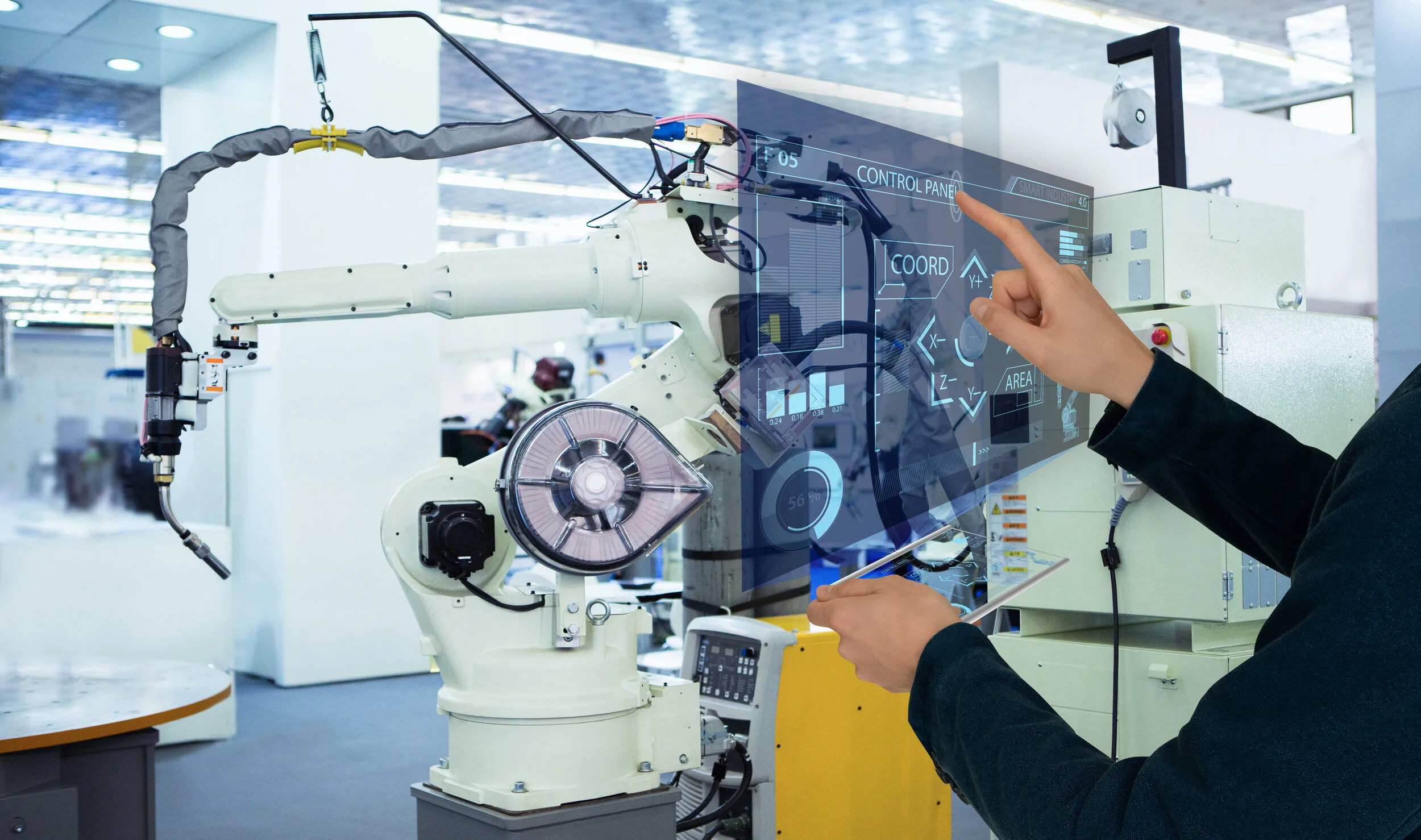Highlights
Canada is a global leader in the early adoption of new technologies and advanced engineering, providing cutting-edge, innovative technological solutions spanning robotics, 3D printing, aerospace, defence, automotive, agriculture and pharmaceuticals.
Manufacturing represents more than 10% of Canadaʼs total GDP, employing 1.7 million people, and paying them more than any other sector (Can$114 billion). It generates exports of more than Can$354 billion each year, or 68% of all of Canadaʼs merchandise exports, and accounts for 42% of private sector research and development activity in the country. Spurred on by a strategic commitment from government to support the industry through various funding and cluster initiatives, businesses are increasingly leveraging artificial intelligence in their processes.
According to the International Data Corporation (IDC), by 2023 more than half of all GDP worldwide will be driven by products and services supplied by digitally-transformed enterprises, and the Canada government is committed to a range of strategic initiatives and programmes nationally that help its companies to become global leaders.
One such example is ʻNGenʼ, the Next Generation Manufacturing Super Cluster based in Ontario. This organisation matches federal funds and private investments with industry-led projects and promotes technology adoption, skills improvements and collaboration between technology and manufacturing companies.
In July 2020, ʻFactory Forward: How Advanced Manufacturing is Retooling Ontarioʼs Industrial Heartlandʼ reported how the nationʼs automotive industry is merging manufacturing and new technology, and outlined the countryʼs potential to be a major player in the technology required for automotive design and manufacture.
According to the Global Affairs Canada report ʻInvest in Canada: Canadaʼs Competitive Advantageʼ, Canada has a cluster of 19,000 information and communications technology companies, second only to Silicon Valley in North America. Canadaʼs strategic targets include increasing its manufacturing sales by 50%, to Can$1 trillion by 2030, and increasing manufacturing exports by 50%, to Can$540 billion by 2030. And given the early adoption and development of new systems and technologies, combined with Canadaʼs global trade deals and strategic public private partnership initiatives, Canadian manufacturing is well-positioned for record growth over the coming decades, providing a very lucrative opportunity for international investors.
Increasingly, over the past few years US companies have been looking towards Canada to access its talent and world leading research in the automotive industry. With the worldʼs leading automotive manufacturers reinventing themselves as tech companies, the vehicle supply chain is changing. Factory Forward reports that BlackBerry, Apple, Ford, Linamar and GM are all involved in autonomous driving research in the Ontario region, a hub for automotive R&D. GM Canada is hiring up to1,000 engineers at its new technical centre in Markham, and Ford has expanded its research workforces in Canada.
In October 2019, Tesla acquired Hibar Systems Ltd, a specialist battery manufacturer, to gain access to its innovative process for mass-producing lithium battery cells. This work is also part of a five-year research agreement with Jeff Dahn, a Dalhousie University physicist and global research leader in lithium-ionbatteries based in Halifax, Nova Scotia.


